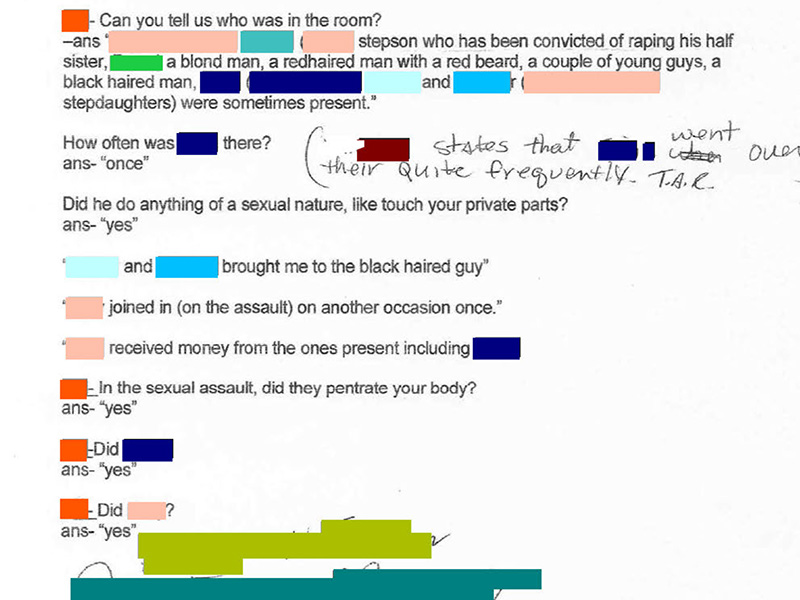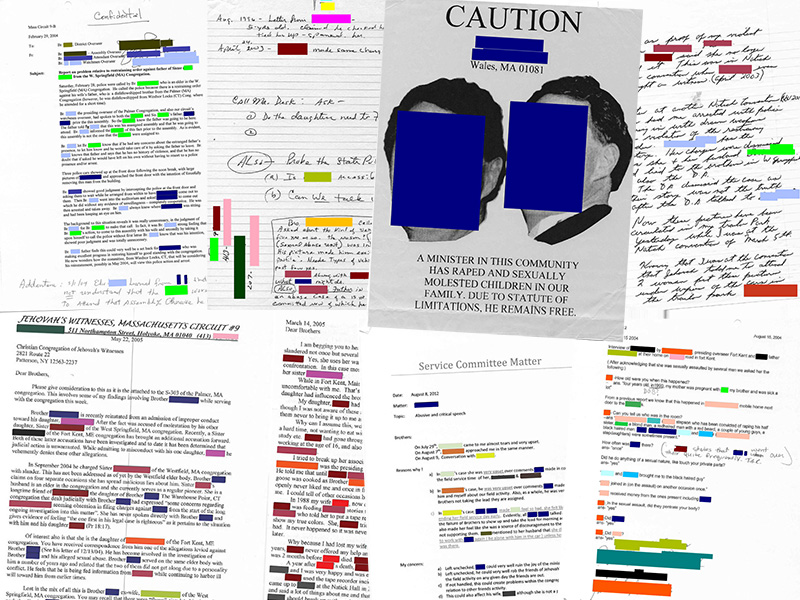(RNS) — Call it the WikiLeaks of the religion world.
A new website called FaithLeaks aims to bring transparency to the workings of religious congregations and denominations by publishing documents and data sets provided by anonymous sources.
The web portal was founded by two former Mormons who have previously gained access to documents shedding light on the inner workings of the Church of Jesus Christ of Latter-day Saints and its position on controversial issues such as gay marriage.
[ad number=“1”]
This week, the two founders — Ryan McKnight and Ethan Dodge — published a trove of 33 letters and documents detailing an internal investigation of alleged sexual abuse within a congregation of Jehovah’s Witnesses.
The pair hopes to entice others to submit documents that shed light on three main areas: congregational finances, church policies and procedures and documents related to sex abuse settlements.

Ryan McKnight founded FaithLeaks.org. Photo courtesy of Ryan McKnight
“Our goal is to reduce the amount of deception and untruths and unethical behaviors that exist in some facets of religion,” said McKnight, an accountant who lives in Las Vegas. “If someone is in possession of documents they feel deserve to be made public, we’re simply here to help facilitate that.”
For would-be whistleblowers, the attraction of FaithLeaks is its security features. The site uses a software platform designed to receive documents from anonymous sources, meaning those documents cannot be traced back to the sender, its founders say.
The newest round of documents published this week relate to a 1999 Jehovah’s Witnesses internal investigation of a church leader accused of molesting his two daughters. The man was disfellowshipped — removed from the church’s membership rolls — but reinstated a year later.
Jehovah’s Witnesses’ Office of Public Information did not return telephone calls from RNS requesting comment.
Boz Tchividjian, a former child abuse chief prosecutor and the founder of GRACE (Godly Response to Abuse in the Christian Environment), said he had mixed feelings about the new portal.
[ad number=“2”]
“As an advocate who wants to bring truth to the surface, I see that this type of site could help empower survivors and advocates to come forward and do so with supporting documentation,” he said.
But he hoped it wouldn’t be abused by some to bully, extort or intimidate.
“One of the sad things is we are living in a society where abuse victims aren’t free to step forward and even provide supporting documentation without being attacked or criticized,” he added.

One of the redacted documents available on FaithLeaks.org from the “Jehovah’s Witness Palmer Congregation Sexual Abuse Investigation.” Image from FaithLeaks.org
McKnight first made news in 2015 when he leaked an LDS church memo detailing a revised position on same-sex households. The new position stated that any Mormons who are in a same-sex marriage are considered to be in apostasy, and any children who live in a home with same-sex parents are not eligible for baptism.
Then, in 2016, McKnight published to YouTube 15 videos of private top-level LDS church briefings showing Mormon apostles discussing topics ranging from gay rights to politics to piracy.
Those videos were also published at MormonLeaks, a similar portal created by McKnight and Dodge to expose the church’s inner workings.
[ad number=“3”]
Both FaithLeaks and MormonLeaks fall under the Truth and Transparency Foundation, a 501(c)(3) nonprofit created by McKnight and Dodge.
McKnight said church finances are one area where he hopes to see greater sunlight.
“If they don’t ever publish their financials, then who holds them accountable?” he asked. “You’re giving your money and hoping for the best. We find that to be not only a position of inequity for the donor and an unethical position to be in because there’s nobody providing any checks and balances.”
McKnight lost his faith in 2013 and resigned his membership in the Mormon church the following year. He now identifies as an atheist.
In the meantime, he is keeping his day job. McKnight does not expect his new portal to become his livelihood, though FaithLeaks has a “donate” tab.





